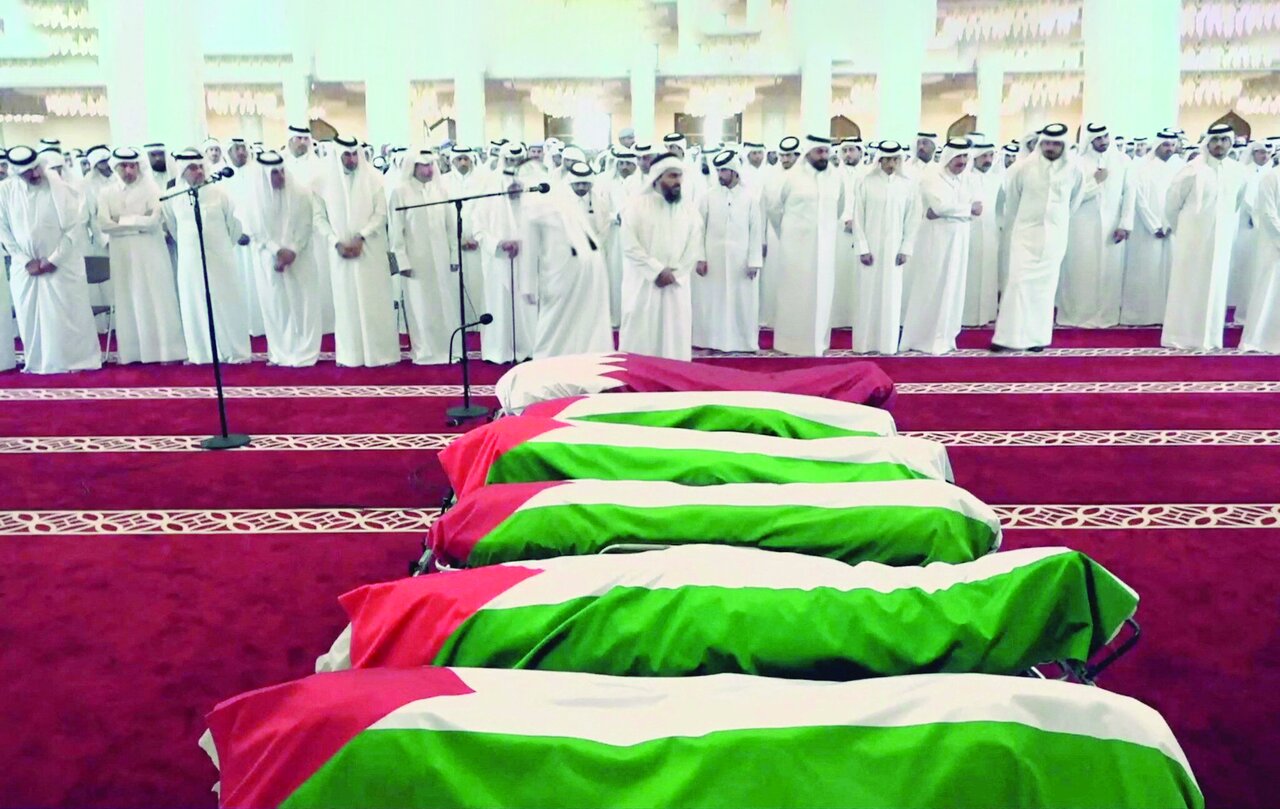Israel's attack on Doha; will Arab states wake up?

TEHRAN – Israel’s reckless airstrike in Doha this week has shifted the political landscape in West Asia. The attack struck a residential area in the Qatari capital on Tuesday, where a Hamas delegation was meeting during U.S.-proposed ceasefire talks over the Gaza conflict. The strike killed five lower-ranking Hamas members, while the leadership survived. A Qatari security officer also lost his life.
This was far more than an attack on a political group. It was a breach of Qatari sovereignty, an affront to the nation’s dignity, and a direct challenge to the wider Arab-Islamic community.
A dangerous escalation
For decades, Israel has waged wars in Lebanon, Gaza, and Syria. But striking the Qatari capital — a nation renowned for its mediation and humanitarian efforts — marked an unprecedented escalation. It reflected not only disregard for Palestinian lives but open contempt for the sovereignty of a state facilitating dialogue.
Normalization illusions shattered
The strike also exposed the limitations of normalization. The Abraham Accords promised peace and prosperity, but the Doha attack proved that engagement does not restrain Israel — it emboldens it. Instead of moderating Tel Aviv, normalization has weakened Arab leverage, leaving the region more vulnerable.
Qatar, which resisted pressure to normalize, now stands vindicated. Its independent approach — prioritizing mediation, humanitarian relief, and the defense of Arab dignity — contrasts sharply with the compromises of other states.
International condemnation
The global response underscored Israel’s growing isolation. In a rare show of unanimity, the United Nations Security Council condemned the strike and called for de-escalation, with all 15 members, including the United States, backing the move.
While the administration of President Donald Trump attempted to distance itself from the attack, evidence points to coordination between Israeli forces and U.S. Central Command (CENTCOM), including cooperation with U.S.-controlled air defense systems. The attack on Qatar also raises concerns that Israel may target other regional countries in the future.
Qatar welcomed the UN Security Council’s condemnation. “Qatar welcomes condemnation of Security Council of treacherous Israeli attack on Hamas delegation, which undermines the international order, as I emphasized to the Council. We’re committed to our humanitarian and diplomatic role, and right to protect our sovereignty and security,” Qatari Prime Minister and Foreign Minister Sheikh Mohammed bin Abdulrahman bin Jassim Al Thani said.
This statement framed Qatar not only as a defender of its own security but also as a custodian of international norms.
From words to action
Doha will host an emergency Arab-Islamic summit on Sunday and Monday, which will carry urgency. Analysts suggest concrete measures are likely to emerge.
“We will see at least some measures that can be taken at the diplomatic level … at least in terms of concrete measures,” Luciano Zaccara, a Middle East political analyst, told Al Jazeera.
Potential actions could include joint diplomatic pressure, restrictions in trade and technology, and coordinated efforts in international forums. The UAE’s decision to bar Israel from a major defense expo is already a precedent, and the confirmed attendance of Iran’s President Masoud Pezeshkian signals a willingness for a united stand.
Israel’s strategy backfires
The strike was intended as psychological warfare to intimidate mediators and signal that no Arab capital was beyond reach. Instead, it has backfired. Rather than dividing the region, it has pushed states closer together. Qatar’s voice has been amplified, both as a victim and as a regional leader.
By overreaching, Israel has triggered precisely what it feared: unprecedented Arab-Islamic solidarity.
A pattern of failure
The Doha attack fits into a broader pattern of Israeli setbacks. In June, Israel — with U.S. backing — launched a 12-day war on Iran, only to face formidable Iranian missile attacks on Israeli cities, exposing the limits of its defenses. The campaign ended without achieving its objectives.
In Gaza, relentless bombardments since October 2023 have killed more than 64,000 Palestinians and have displaced hundreds of thousands without dismantling Hamas. The humanitarian crisis has drawn growing international criticism.
Against this backdrop, the Doha strike appears less like strength and more like desperation — an attempt to distract from repeated failures in Gaza and Iran.
Qatar’s moment of leadership
For Qatar, the attack has clarified its regional role. By hosting the upcoming summit and rallying states toward collective action, Doha demonstrates that leadership rests on moral clarity and principled diplomacy rather than military might. Presently, the summit will test whether Arab and Islamic states can translate their outrage into concrete economic, political, or security action, and whether the attack on Doha will serve as a wake-up call.
Leave a Comment